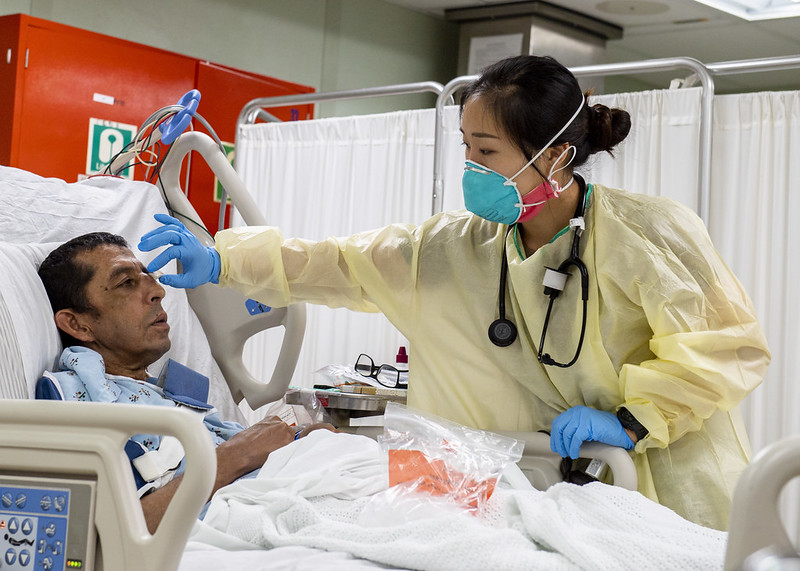Mass resignation of doctors: Clashes with government in Seoul
They are protesting over the increase in the number of students admitted to university faculties, a measure that has been talked about for some time in a country that has one of the lowest rates of doctors in relation to its population. But health workers claim that other deficiencies such as overcrowding in hospitals are not being addressed. Preceptions were ordered while the police investigated the protesters.
Seoul (AsiaNews) - The announced mass submission of resignation letters by South Korean medical staff began on Monday 19 February. The exact number is still unknown but local media speak of over 2000 letters submitted so far.
The mass resignations - which risk throwing the national health system into chaos - are part of a collective action to protest against the government's decision to raise the admission threshold for medical faculties by 2000 units.
The admission threshold for medical students had remained unchanged since 2006 at around 3,000 aspiring doctors and in the past medical staff had managed to resist attempts by the government to change the number of admissions.
However, the country's healthcare sector is in a situation of serious staff shortage which especially affects rural areas and key healthcare sectors such as obstetrics and pediatrics.
The policy aimed at increasing the number of places available annually in universities, announced in 2020 and with the aim of raising the admission threshold to 4,000 units within ten years, is intended to be the government's response to what presents itself as a serious social emergency.
In fact, among the most industrialized countries, South Korea has one of the lowest rates of medical personnel compared to the total population of the country.
However, increasing the admission threshold would not address what national medical personnel consider the real problems of the sector. Doctors argue, in fact, that the measure will not address the overload of large university hospitals and the lack of incentives to practice in critical fields.
On February 15, hundreds of doctors demonstrated in Seoul and other cities against the government's plan, and by the next day over 700 letters of resignation from doctors and trainees had been filed.
To avoid serious repercussions on the country's healthcare system, the government - in line with article 59 of the Medical Service Act - has ordered all doctors and trainees to return to duty and continue providing healthcare to patients.
The police have announced that they will open investigations against the doctors who took part in the protests as they are guilty of violating the law. In South Korea, in fact, doctors are not considered workers but specialists who do not have the right to carry out collective actions. However, further nationwide protests are expected today.
12/02/2016 15:14
07/02/2019 17:28
11/08/2017 20:05







.png)










